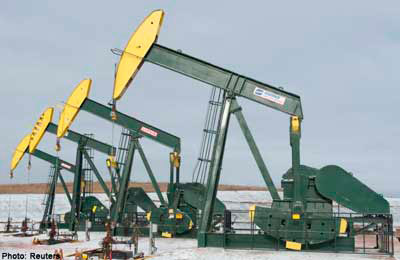
Expats and private firms....to be affected by subsidy cuts
Subsidy cuts for wealthy expats, firms proposed
MANAMA, May 5, 2015
Subsidy cuts are set to hit wealthy expatriates and companies first under proposals being considered following the Bahrain Cabinet's approval of the new national budget yesterday (May 4).
This was revealed to the Gulf Daily News (GDN), our sister publication, by Shura Council financial and economic affairs committee chairman Khalid Al Maskati following an early morning meeting with Finance Minister Shaikh Ahmed bin Mohammed Al Khalifa.
“Subsidies are consuming at least BD1 billion ($2.6 billion) and have to be cut as we can't continue to give the non-deserving support while others in need want things done,” said Al Maskati.
“A gradual removal of subsidies from companies and well-earning expats will be the first step (under the proposals) and later on other expats will also be affected, in a time frame that is yet to be determined and would take at least four years.”
Other options were also on the table, Al Maskati said, subject to ongoing discussions between representatives of Shura Council, parliament and a ministerial delegation.
Under the budget approved by the Cabinet, government revenues are expected to be BD4.255 billion over the next two years, based on a $60 per barrel forecast oil price.
Oil will therefore account for BD3.45 billion of total revenues, with the rest coming from other sectors.
BD7.292 billion in recurrent expenditure has been budgeted for over the two years, including BD1.2 billion for new projects divided up between BD435 million this year and BD585 million the next.
This includes BD195.5 million for aid directed towards disadvantaged families, BD178.5 million for state pension funds and BD150 million to allow the separation of Bapco's revenues from the government books.
This will leave a budget deficit of around BD3 billion, divided up into 1.47 billion this year and BD1.563 billion the next.
At a media briefing following the weekly Cabinet session yesterday, Shaikh Ahmed described the budget as 'realistic' and said it had been drawn up taking into account the needs of the people while allowing for economic growth.
Housing
“We intend to carry out our programmes and projects through the budget and other procedures with social housing topping our priorities, as we use the GCC $10 billion aid package,” he said.
“Our revenues will come from 47,000 barrels sold daily this year and 46,000 daily the next year from the Bahrain Oil Field, besides 150,000 barrels daily from Abu Saafa Oil Field, fixed for both years, with us taking $1 from exported barrels towards the Future Generations Fund.
“Among the projects we have outlined are the cancer treatment centre, the Shaikh Isa Sports City and The King Hamad Future Schools, among others that will be revealed to legislators in the breakdown that will be presented.”
Shaikh Ahmed said all spending would now be looked into by legislators, who will have the final say on whether the budget gets the go-ahead.
“Things may change according to their vision, but we hope to reach an agreement,” he said.
“Subsidies policy is something they have told us they want a say in.
“In all cases we want to achieve an equilibrium between spending and revenue and our budget is very good and could be modified.
“We want to move away from dependence on oil and we are working on the logistics sectors, besides enabling medium and small enterprises, while supporting investment, as we want to continue competing regionally amid a changing oil market.”
Meanwhile, Cabinet secretary general Dr Yasser Alnasser said His Royal Highness Prime Minister Prince Khalifa bin Salman Al Khalifa had directed all ministries and government bodies to carefully manage their spending according to the eight core visions determined by the Cabinet under the four-year action plan.
“Spending will have to be in line with the four-year action plan approved by parliament, having revenues from the National Oil and Gas Authority and Bahrain Mumtalakat Holding Company added to national coffers, enhancing non-oil sources of revenue, collecting owed debts and providing services at actual rates,” he said.
“It will come up with procedures to control spending, conserve money and devise a medium-range plan on recurrent expenditure.
“Plans also include drawing up a new subsidies policy to redirect subsidies to those in need, while removing it gradually from non-nationals, rescheduling repayment of loans and coming up with projects and programmes that will benefit the national economy.”
Dr Alnasser said the government was encouraging investment, development of the industrial sector and tourist projects that promote Bahrain.
According to official figures, Bahrain's economy grew by 4.2 per cent last year, with 4.6 per cent growth in non-oil sectors and two per cent in oil sectors.
The hotel and catering sector saw 9.2 per cent growth, social and personal services 7.1 per cent, oil and gas six per cent and construction 5.6 per cent. - TradeArabia News Service







